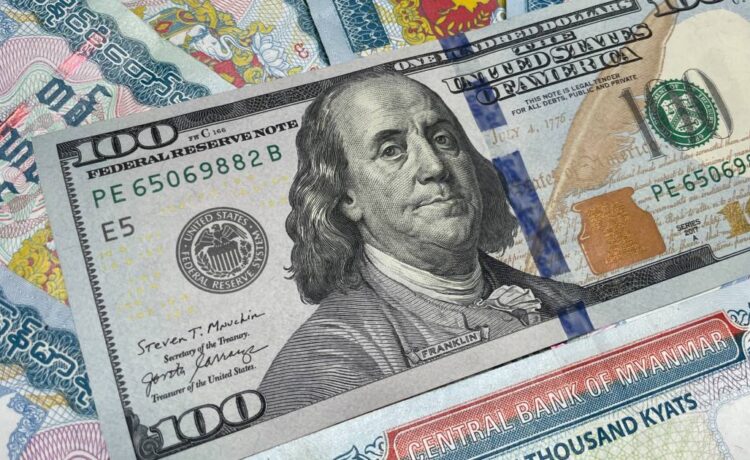(Reuters) — Myanmar’s central bank will no longer set exchange rates for foreign currencies and will allow banks and dealers to decide rates themselves, state media reported on Wednesday, in a rare easing of some of its tight forex controls.
With Myanmar’s economy in tatters after a 2021 military takeover and foreign reserves under pressure, authorities have imposed a slew of measures to suppress demand for foreign currencies, while cracking down on black market trading and revoking more than 140 money changer licenses this year.
The report gave no reason for Tuesday’s decision by the central bank, which did not announce the policy change on its website nor answer calls from Reuters on Wednesday.
Under military rule, the central bank has moved away from a managed floating exchange rate system toward reliance on administrative controls, including requiring firms to surrender foreign exchange and report currency trades.
Some exporters have been required to convert dollar earnings into the kyat at an official rate set by the central bank, which in August ordered ministries and local governments not to use foreign currencies for domestic transactions to ease pressure on the kyat.
Sean Turnell, an Australian economist who advised Myanmar’s last government and was imprisoned with some of its top leadership, said the central bank’s move was a sign the junta was in trouble.
“Myanmar’s military regime suddenly gives up on the fixed exchange rate they have struggled to maintain since the coup,” Turnell posted on Facebook. “My take: they can no longer supply the foreign currency even their own suppliers (esp. of fuel) need. A further knell summoning them to hell.”
Junta spokesperson Zaw Min Tun could not be reached for comment. In July this year, he said Myanmar had “adequate foreign currency reserves.”
The World Bank in a report in June said Myanmar’s economy and currency were showing signs of stabilization, but investment remained weak and businesses were struggling with rising costs and difficulties accessing foreign currency needed to import materials.
Myanmar’s exports and manufacturing have declined on weaker demand, while divestment by foreign firms has seen its reserves of natural gas, a key earner, fall due to slower extraction activity. Western sanctions on military-owned energy firms are expected to further squeeze income.
Tin Tun Naing, finance minister with Myanmar’s shadow National Unity Government, in a recent interview with Reuters said the generals were struggling with finances and their key supply chains.
“You will have seen them unable to make key imports such as fuel, indicating a shortage of foreign reserves. We can also tell by how they are desperately trying to generate new forms of revenue,” he said.

















